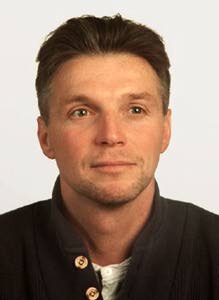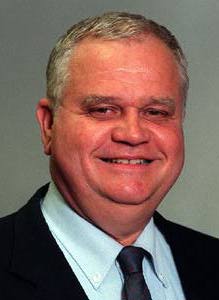Dayton Daily News series:
Unnecessary Danger
On Oct. 5-11, 1997 the Dayton Daily News published a seven-part series exposing dangerous flaws in the military's health care system for service personnel. "Unnecessary Danger," written by DDN projects reporter Russell Carollo and Cox Washington Bureau reporter Jeff Nesmith, would later win the 1998 Pulitzer Prize for national reporting. "Unnecessary Danger," written by DDN projects reporter Russell Carollo and Cox Washington Bureau reporter Jeff Nesmith, would later win the 1998 Pulitzer Prize for national reporting.The project was directed by Projects Editor John Erickson. Principal photography was by Skip Peterson and page design was by John Hancock.
Others who worked on the project: Andy Alexander, Rick McKay, Lee Waigand, Mike Goheen, Key Metts, Kathy Devaney, Fred Kraus, Chuck Pettee, Dennis Polite, Bernie Smith, O'DellSteward, Jill Waigand, Jim DeBrosse, Wes Hills, Kevin Lamb, Michael Jesse; Stuart Watson. | Part 1 - Oct. 5, 1997: Flawed and Sometimes Deadly The U.S. military operates a flawed and sometimes deadly healthcare system that lacks the most significant safeguards protecting civiliansfrom medical malpractice. Part 2 - Oct. 6, 1997: 'The Needle went Wrong' An Ohio teen-ager's case illustrates how a flawed medical systemcan change a life. Part 3 - Oct. 7, 1997: Too Many Patients Too Little Time The William Beaumont Army Medical Center in Texas was targetedfor more medical malpractice claims in a 10-year period than any othermilitary health facility in America, but the problems there occur to somedegree in every military hospital. Part 4 - Oct. 8, 1997: Special Licenses For Some Doctors Despite a mandate that doctors in the military hold statemedical licenses, at least 77 practiced without meeting the minimum licensingrequirement. Part 4 - Oct. 9, 1997: Double Standards of Care The armed services voluntarily participate in a nationalregistry of doctors linked to medical malpractice but under rules thatdrastically restrict the number of physicians who get reported. Part 6- Oct. 10, 1997: The Man In The White Coat Was No Doctor The military cuts costs and fills doctor shortages in hundreds ofclinics and hospitals by allowing staff members without medical degrees orlicenses to provide the same care civilians often get from licensed doctors. Part 7 - Oct. 11, 1997: Laws And Rulings Shield Doctors Military personnel and their families often can do nothing whenvictimized by the military's health care system. |

